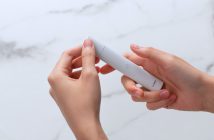Where there’s a will, there’s a way, and the “E-Sisters” have finally gotten theirs –Essure will be off the U.S. market by the end of 2018.
In July, Angie Firmalino, E-Sister and one of the leaders in the fight against Essure, told the Washington Post that she was “blown away” by the news. “It took way too long, but we won,” said the 46-year-old mail carrier from Tannersville, N.Y., who was implanted with the device in 2009. Ms. Firmalino started the Facebook group “Essure Problems,” In 2011 to give Essure victims the ability to communicate with others who have suffered harm. The Essure Problems group, which currently has more than 37,000 “E-Sisters,” has also been waging a social media war against Essure, urging the U.S. Food and Drug Administration to ban the permanent birth control device.
Initially approved by the FDA in 2002, Essure was at first hailed as a “nonsurgical alternative to tubal ligation” (having ones tubes tied). The premise behind Essure is relatively simple: a doctor inserts two tiny flexible metal coils through the vagina and cervix into the fallopian tubes during a 10-minute office procedure. Within three months, scar tissue will have formed around the coils, creating a barrier that prevents pregnancy at a rate in excess of 99%, according to U.S. Food and Drug Administration estimates.
But for thousands of women, including Ms. Firmalino, this once-promising device has caused some very serious problems – severe pain, bleeding, autoimmune issues, allergic reactions, unintended pregnancies, and perforation of the ovaries and fallopian tubes. After Ms. Firmalino was implanted with Essure, she almost immediately experienced pain and bleeding and upon learning that the coils had migrated to her uterus, underwent a hysterectomy.
From Essure’s 2002 approval through the end of 2017, the FDA received approximately 26,773 adverse reports related to the device. But in spite of this public outcry, the FDA stopped short of an Essure ban, instead issuing a series of warnings regarding the safety of the device:
-
February 2016 – The FDA announced that Essure would require a black box warning indicating extreme risks and potential serious injuries connected with use of the device.
-
September 2016 – The FDA ordered Bayer (the maker of Essure) to launch a postmarket surveillance study to obtain more information about the benefits and risk of Essure.
-
October 2016 – The FDA issued final guidance, “Labeling for Permanent Hysteroscopically-Placed Tubal Implants Intended for Sterilization,” after reviewing feedback from a 2015 Advisory Committee meeting and public comments
-
April 2018 – The FDA restricted sales of the Essure device to only doctors and healthcare facilities that agreed to review the FDA-approved “Patient-Doctor Discussion Checklist – Acceptance of Risk and Informed Decision Acknowledgement” with patients. The FDA also approved new labeling regarding the risks and benefits of Essure.





